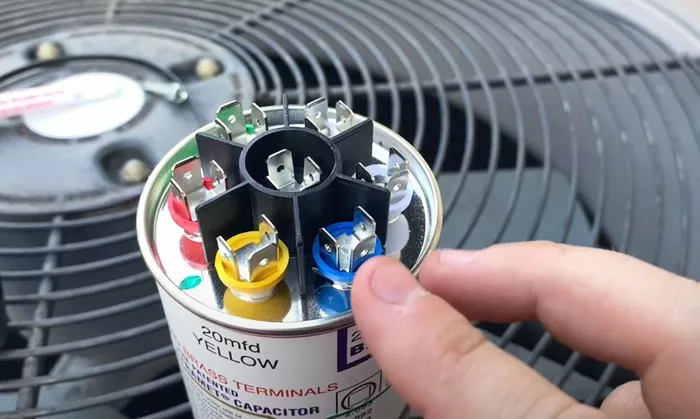Choosing the right air conditioner capacitor is crucial for maintaining the efficiency and longevity of your cooling system. Capacitors play a vital role in starting and running your AC unit, so selecting one with the right performance and durability is essential. This guide will help you understand what to look for when choosing the best air conditioner capacitor.
1. Understanding Air Conditioner Capacitors
What is an Air Conditioner Capacitor
An air conditioner capacitor is an electrical component that stores and releases energy to help the AC unit’s motor start and run efficiently. It works by providing an initial burst of energy to start the compressor and then continuously supplies power to keep the motor running.
Types of Capacitors
Start Capacitors: Provide a boost of energy to start the compressor.
Run Capacitors: Maintain a continuous supply of energy to keep the motor running.
2. Key Performance Factors
Capacitance Rating
Definition: Measured in microfarads (µF), the capacitance rating indicates the amount of energy the capacitor can store and release.
Importance: Ensure that the capacitor’s capacitance rating matches the specifications of your air conditioner to avoid performance issues.
Voltage Rating
Definition: Indicates the maximum voltage the capacitor can handle.
Importance: Choose a capacitor with a voltage rating that meets or exceeds your AC unit’s requirements to prevent potential failures.
Tolerance and Precision
Definition: Tolerance refers to the allowable deviation from the capacitor’s rated capacitance.
Importance: A capacitor with a low tolerance provides more precise performance and reliability. Ensure the tolerance is within acceptable limits for your AC unit.
See also: Worx Tools Review: Performance, Durability, And Value
3. Durability and Build Quality
Material Quality
Electrolytic vs. Film Capacitors: Electrolytic capacitors are common but may have shorter lifespans compared to film capacitors, which offer greater durability.
Protection Features: Look for capacitors with built-in features like thermal protection and over-voltage protection to enhance longevity.
Environmental Resistance
Temperature Tolerance: Capacitors should withstand the temperature extremes typical of air conditioning environments.
Humidity and Corrosion Resistance: Ensure the capacitor is designed to resist moisture and corrosion, which can affect performance.
4. Brand and Manufacturer Reputation
Reliable Brands
Trusted Names: Opt for capacitors from well-known brands like Emerson, Honeywell, or Siemens, which are recognized for their quality and reliability.
Customer Reviews: Check reviews and ratings to gauge the performance and durability of the capacitor from real users.
Warranty and Support
Warranty Period: A longer warranty often indicates confidence in the product’s durability. Look for capacitors with at least a 2-5 year warranty.
Customer Support: Good customer service and support from the manufacturer can be crucial if you encounter issues.
5. Installation and Maintenance
Proper Installation
Professional Installation: Have a certified HVAC technician install the capacitor to ensure it’s done correctly and safely.
Compatibility Check: Verify that the capacitor is compatible with your specific air conditioner model before installation.
Regular Maintenance
Inspection: Regularly inspect the capacitor for signs of wear or damage, such as swelling or leaking.
Replacement: Replace the capacitor if you notice decreased performance or other issues to maintain optimal air conditioner function.
6. Cost Considerations
Cost vs. Quality
Budget: While it may be tempting to opt for the cheapest option, investing in a high-quality capacitor can save you money in the long run by improving performance and extending the life of your air conditioner.
Value: Consider the overall value, including performance, durability, and warranty, rather than just the initial cost.
Price Range
Typical Prices: Capacitors typically range from $10 to $50, depending on their specifications and brand. Higher-end models with advanced features or better durability may cost more.
Conclusion
Choosing the best air conditioner capacitor involves considering various factors, including performance, durability, brand reputation, and cost. By selecting a capacitor with the appropriate capacitance and voltage ratings, ensuring high-quality build and materials, and opting for reliable brands, you can enhance your air conditioner’s efficiency and longevity. Regular maintenance and proper installation further contribute to optimal performance, ensuring your cooling system operates smoothly and effectively.
Related Topics:

